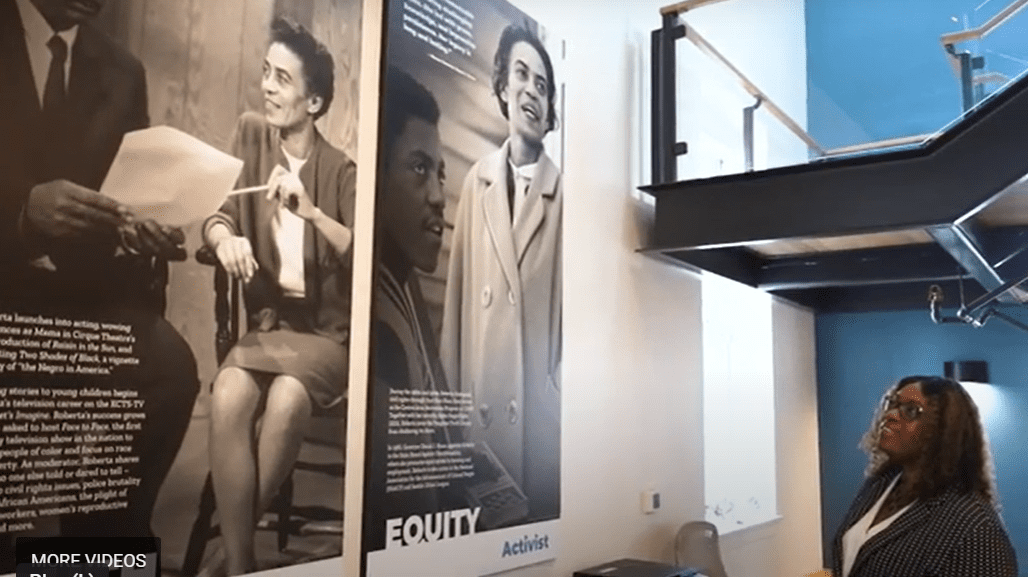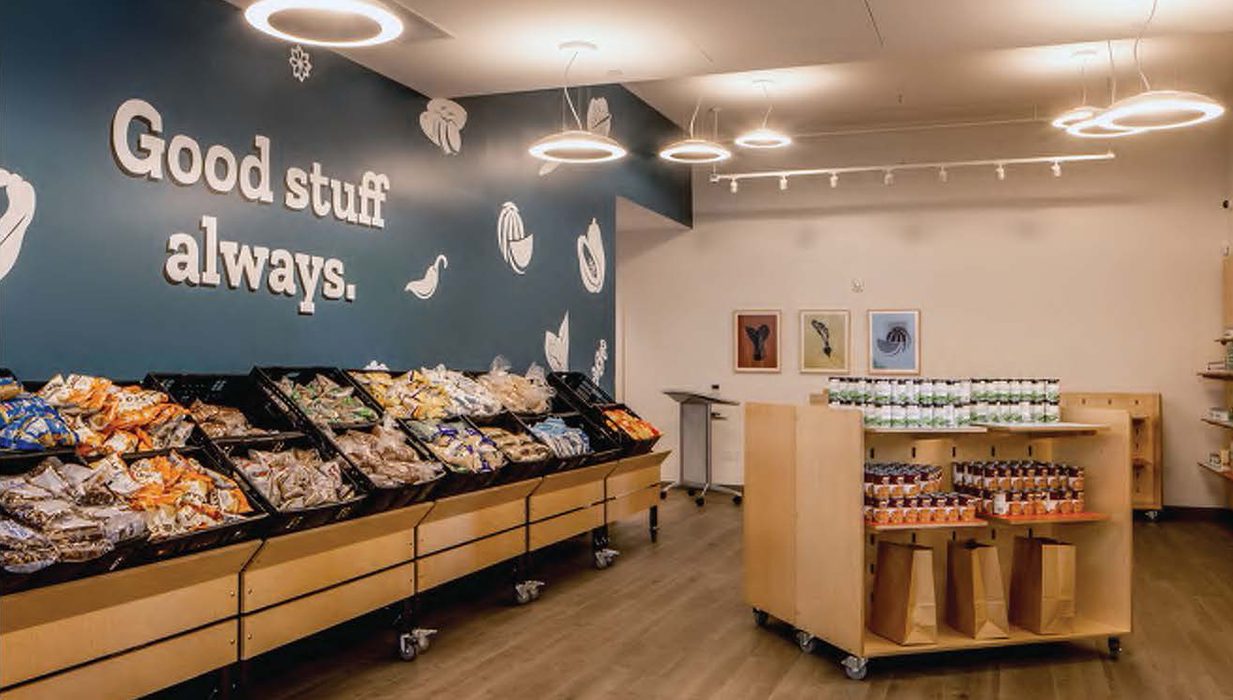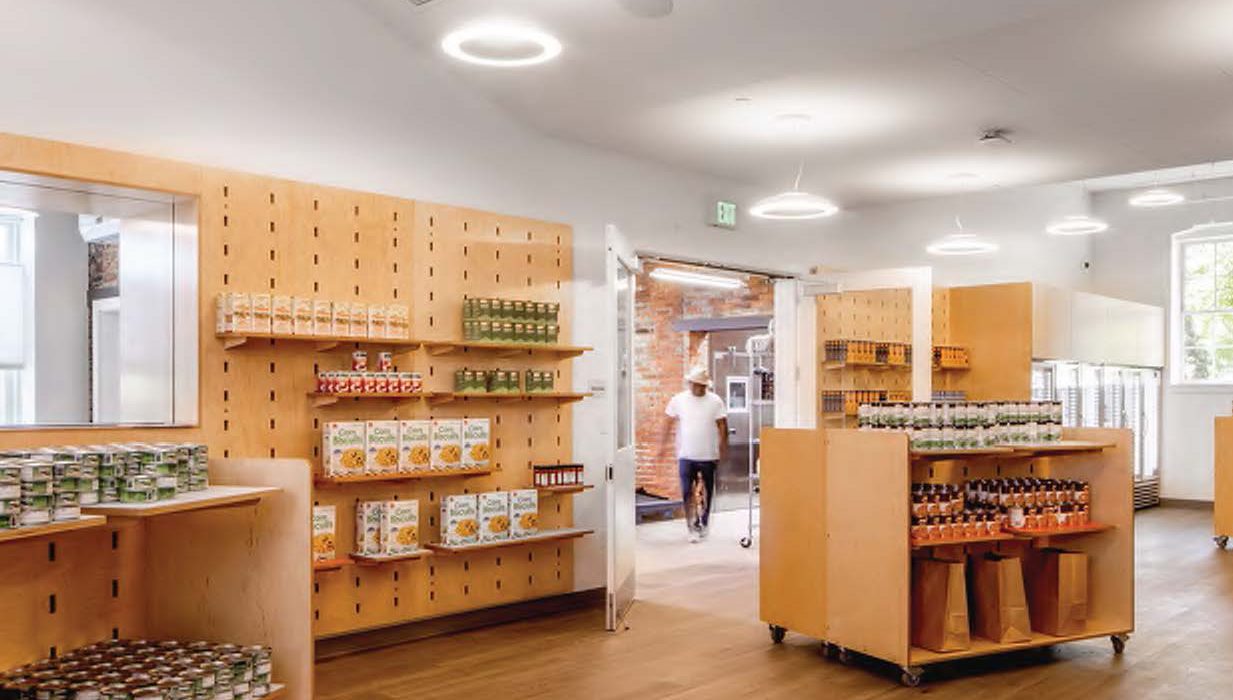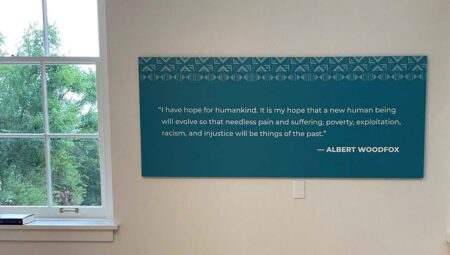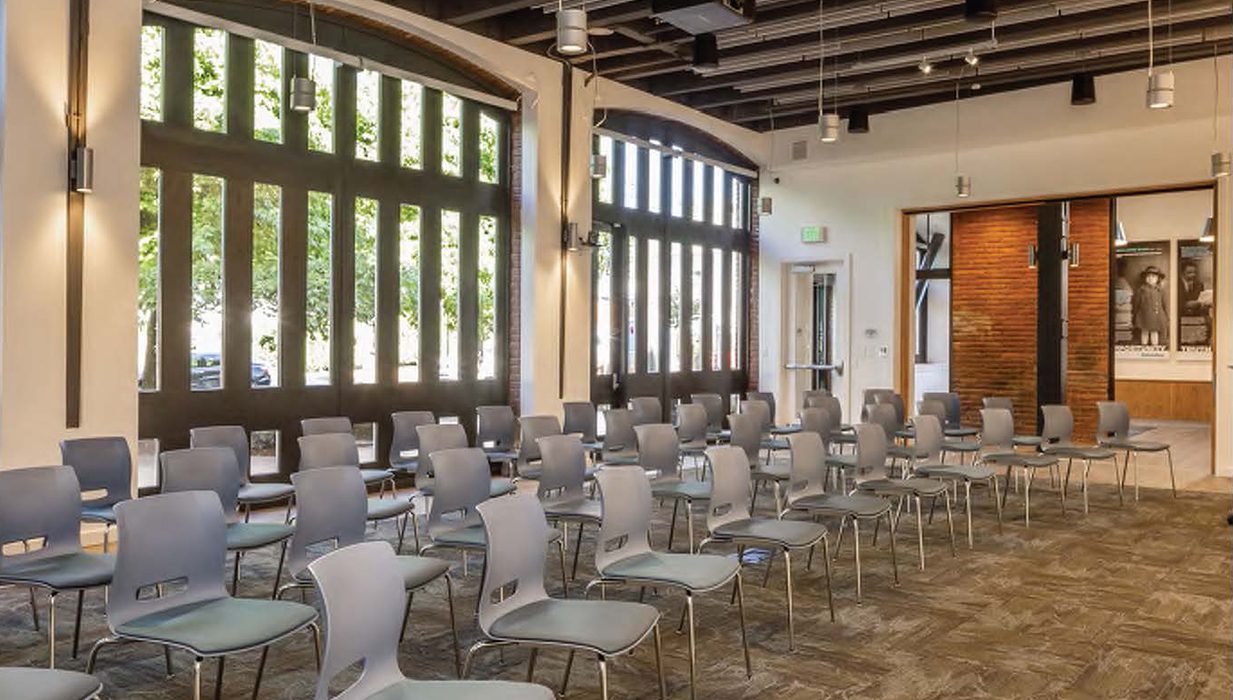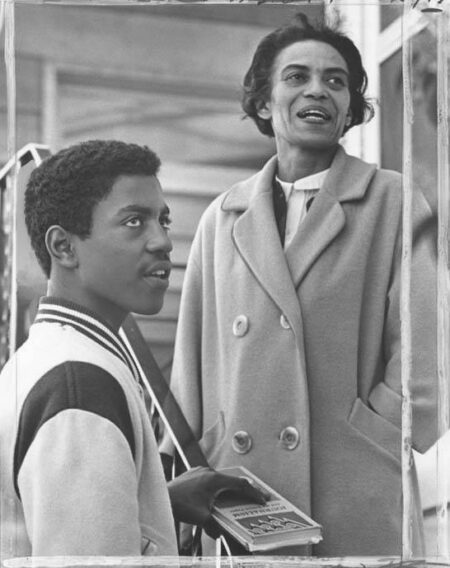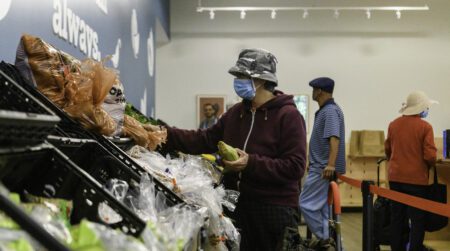
Community Corner highlights the work of Seattle Human Services’ community partners in their own words. Our goal is to gather stories and photos that illustrate their amazing work on behalf of the people of Seattle.
What is the role your organization fulfills in your community?
We’re dedicated to creating an equitable future. Every day, we work to create an equitable future for all Washingtonians through innovative programs, services and advocacy that empower people to live healthy, prosperous lives. In Seattle, Byrd Barr Place provides essential services—food, shelter, warmth, water and financial tools—to help people build stability and self-sufficiency.
Our essential services fill a critical need for people. Our clients come from all parts of the city, with varied social, cultural and ethnic backgrounds. They include Black, Indigenous, and other people of color; refugees and immigrants; the elderly and the disabled. Most live at or below 150% of the federal poverty level.
In 2022, we served:
- 4,700 households through The Market, supplying fresh, healthy food to nourish families.
- 6,650 households through our Energy Assistance Program, helping families keep warm in the winter and cool in the summer and providing relief on past-due energy utility bills.
- 530 households with our Water Assistance Program to maintain vital drinking water and wastewater services.
- 1,065 households through rental assistance to avoid eviction and remain in the place they call home.
- 800 individuals through our community connectors, getting folks set up with services like childcare and transportation to meet their needs.
- 875 individuals through our personal finance workshops, helping community members gain confidence and skills in budgeting, managing their credit, and saving.
True to our roots, we continue to advocate for Black liberation. Through groundbreaking research and community engagement, Byrd Barr Place also advocates for equity statewide to dismantle poverty and racism.
Most recently, we partnered with the Black Future Co-op Fund, Washington’s first philanthropy by and for Black people, to produce a monumental report: Black Well-being: Moving Toward Solutions Together. Almost 1,000 community members contributed to this report, rooting it in the wisdom and experience of Black Washingtonians.
Building on Byrd Barr Place’s 2015 report, Creating an Equitable Future in Washington State, the new report elevates community-identified approaches to tackling the structural barriers prohibiting Black well-being. It is intended to be a tool for collective organizing, informing policy change and directing resources into Black communities.
How does your partnership with Seattle Human Services (HSD) assist you in that role?
Byrd Barr Place is the recipient of the community connector position, funded through Seattle Human Services. This position allows us to provide light case management to our clients who experience a myriad of challenges by responding to their needs with solutions for additional service. Additionally, HSD provides support for our Market operations, where we serve thousands of households through in-service market, home delivery, and “no cook” bags for our unhoused population.
What is your organization’s origin story?
Byrd Barr Place began its legacy as the Central Area Motivation Program, also known as CAMP, in 1964 during the Civil Rights Movement. At the time, Americans were experiencing the highest rates of poverty since the Great Depression. CAMP’s motivation was to help people help themselves as part of the first generation of community-inspired organizations founded by the federal Economic Opportunity Act. Grassroots organizers in Seattle’s Central District joined together to build economic mobility and civic engagement within the Black community.
Our name honors civil rights heroine Ms. Roberta Byrd Barr
Today, we are Byrd Barr Place, named after Ms. Roberta Byrd Barr, a powerful civil rights leader, educator and journalist, who helped forge the path to self-determination for Black people and others who have been systematically oppressed. Roberta embodied the values that are the foundation of Byrd Barr Place: truth, community, equity, excellence and resiliency. We are humbled by her legacy and honored to carry forward her name.
How has your organization grown or developed in recent years?
Our home delivery program has grown from 14 at the beginning of 2023 to over 140 as of October. One of the new locations is the True Hope Village, right down the road from us on 17th Ave. We started delivering 10 boxes to families at True Hope and want to get food for all 33 residents eventually. True Hope Village is a housing community that focuses on uplifting families and individuals out of homelessness. The food we bring there will alleviate a huge pressure on the residents. As food costs are skyrocketing and benefits are falling, we are reminded how impactful providing food is in building a resilient community. We are currently serving more than 140 households per week (on average).
Why is it important for HSD and City of Seattle taxpayers to invest in community-led work?
Community-led work is an opportunity for self-determination for a community. Community-led organizations are places where people are seen, heard, and valued. Our organization is comprised of members of our community. We walk to work every day and we know our neighbors and our clients. We are a part of this community; therefore, when we are planning projects or making decisions, we are doing so with a distinctive viewpoint, as members of the community. We engage the community with conversations and surveys and elicit their feedback throughout their time in our offices. This allows the community’s voice to be heard and for them to play a part in how they are served.
How do your programs and services help to reduce the disparities experienced by people of color living in our region?
Byrd Barr Place is a Black-led organization that has served clients in the Central District since 1964. We focus our direct services in our communities most vulnerable. The majority of our clients are BIPOC and seniors. Our services provide food, shelter, heat, air conditioning, and financial literacy to the people most marginalized. Our staff and leadership team are members of these communities.
Our research and advocacy work focuses directly on anti-poverty and anti-racist work for Washingtonians. With our work, we are intentionally disputing preconceived notions of wealth and provide access to healthcare and education for our most vulnerable community members.
What’s one example of how an HSD-funded program or service made a difference for one of your community members?
We had a young man come into Byrd Barr seeking food assistance. After he gathered his groceries, he shared a bit of his story with us. He was sleeping on his cousin’s couch and barely had any financial assistance through DSHS. He was interested in finding a job, going to school, and finding a way to use public transit.
After a lengthy discussion we learned he was an artist and graphic designer. We worked together over multiple weeks. Together we made him a resume, created an Upwork profile in which he could find contract work, enrolled him at Seattle Central, and got him signed up for the Orca LIFT program. He later stated, “All I needed was some guidance. I feel more stable and feel happy to be working towards something now.” This made us realize how important even little moments together are. He just needed someone who was tapped into community resources, and because of this HSD-funded program, we were able to do that.
What motivates your staff or keeps you going?
Our staff is inspired by the clients we serve. There is such great need in our communities and poverty is often shamed, especially for Black people and other marginalized people. We treat our clients with respect, dignity, and warmth. They are valued members of our community, and we celebrate their wins, while lamenting their losses. As members of the communities we serve, we feel compelled to walk beside them as they strive toward self-resiliency.
Byrd Barr Place is located at 722 18th Avenue, Seattle, WA 98122. Learn more at byrdbarrplace.org.
Photos courtesy of Byrd Barr Place.
